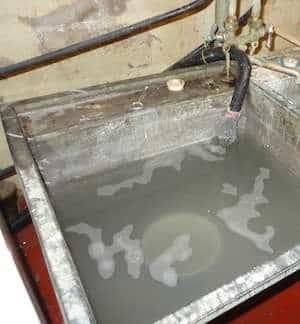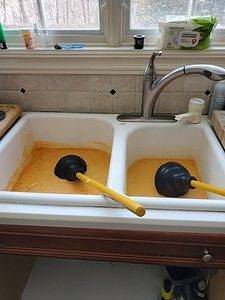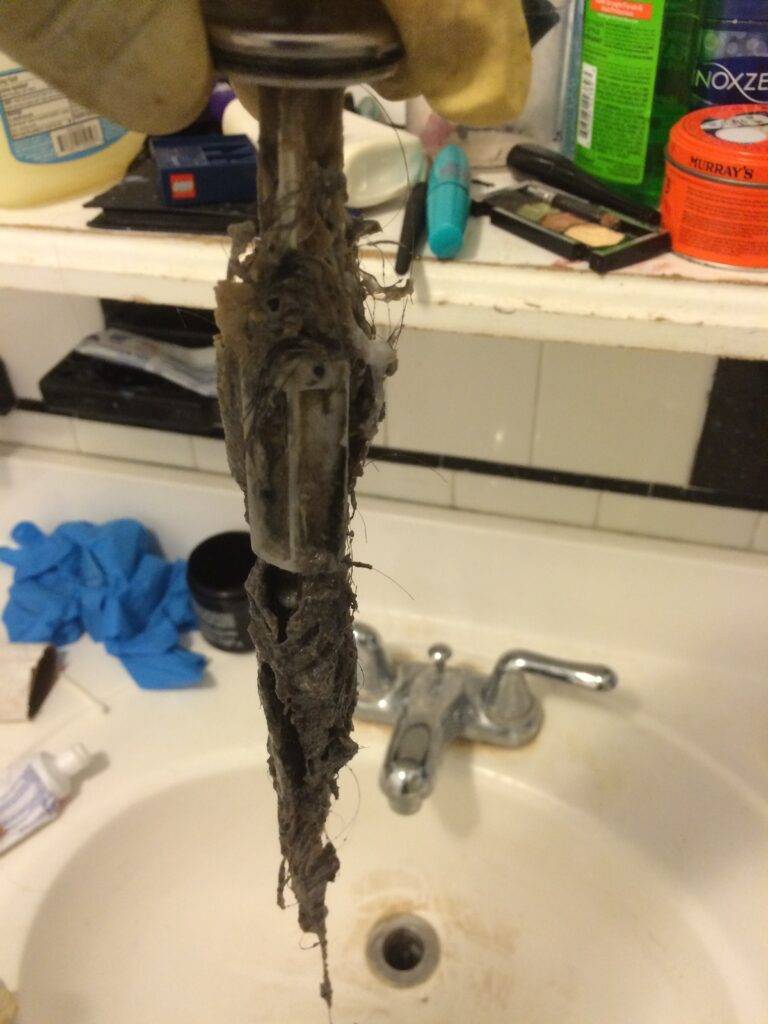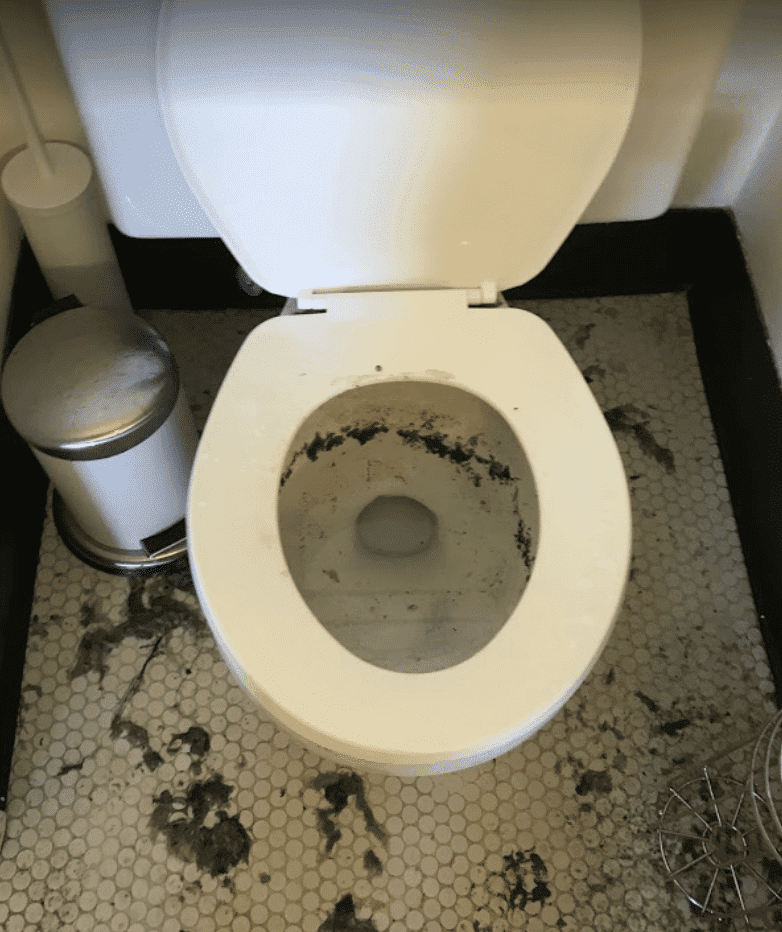How to keep your drain from clogging
Drain clogging always seems to happen at the worst possible time, like when you have a houseful of overnight guests or a big party. And while you may not be able to stop every drain from clogging, there are steps you can take to prevent most clogs and nasty backups before they occur.
Washing Machines

If the drain for your washing machine hasn’t ever backed up, you’re lucky. Lint, bits of fabric, facial tissue and even the occasional sock can sneak through your washer’s drain hose and cause trouble in your drain.
To keep your washing machine drain from clogging, install a lint trap on the end of the drain hose. You can buy mesh lint traps for your washer’s discharge hose at home centers and hardware stores, or you can simply use an old nylon stocking. Use a zip tie to hold the lint trap in place. Keep an eye on the trap and replace it when it’s full. For extra insurance, buy a Lint Trapper by Sioux Chief (shown above). This reusable cone-shaped trap snaps into your laundry tub drain hole. It’s available online and at some home centers and hardware stores
Kitchen Sinks

Kitchen sinks deal with many elements, from grease to paper to food. Similar to soap buildup, grease buildup is caused by a gradual accumulation of grease in the pipes.
However, once the grease cools, it sticks to the pipe walls and dramatically reduces the amount of water able to run through the drain. Grease buildup develops at a much faster rate than soap buildup, due to its viscous nature.
Food can also cause some considerable clogging in your drains. Thick foods like pasta, rice, potatoes, coffee grounds, and eggshells can cause major trouble for drains.
One of the worst things you can pour down your drain is grease. Warm grease runs down your drain until it cools in the pipe, where it congeals to start forming a clog.
Then other stuff gets stuck in it, and before you know it you’ve got a major clog. The best solution is to avoid pouring any grease or oil down your drain. Just keep a jar handy to collect the grease, and throw it into the trash when it gets full. Or, if you’re one who likes to cook with leftover bacon grease, you can buy a container that’s designed to save the grease for reuse.
Bathroom Sink Drains

The pop-up stopper on your bathroom sink drain is a magnet for hair, dental floss, and other yucky stuff. And it’s probably a good thing because it keeps all of that out of your drains. But allowing this waste to build up for too long can cause the sink to drain slower and slower and eventually not empty at all. And because the water flow down the drain is also slowed, clogs in the drain lines can form more easily.
When you notice that your bathroom sink is draining slowly, remove the stopper and clean it. Most pop-ups can be installed in two ways. They can either be hooked into the pivot rod that lifts them or simply rest on it. If your pop-up stopper is hooked in, you’ll have to unscrew the nut on the back of the tailpiece (under the sink) and pull out the pivot rod to release the pop-up (top photo).
When you reassemble it, try reinstalling the rod without running it through the hole in the pop-up stopper. Then drop the stopper into the drain hole. In most cases, it will work fine this way, and you’ll be able to remove the pop-up stopper for cleaning without removing the rod.
Toilets

The first tip is to avoid flushing, non-flushable items. These items are often the cause of clogs and toilet backups. The toilet bowl is designed for a single purpose; flushing human waste. Toilet paper is designed to go through the drains, but paper towels, diapers, and spoiled foods are not. These items often get stuck in the Trap bend and cause a backup.
Several items are toted as flushable, that still should not be sent into a septic tank or sewer system via the toilet bowl. Feminine hygiene products, cleaning wipes, paper towels, tampons, and baby wipes are considered flushable to the company, but they simply are not designed for older plumbing systems.
Tampons are designed to absorb liquid, and that includes water. Many toilets have clogged due to these devices filling with water and getting trapped in the plumbing of a home. One other thing: if you have a shelf installed above your toilet, keep the lid closed at all times that will prevent foreign objects from falling into the toilet bowl and possibly flushed down into the toilet.
If your plumbing fails, contact The Clog Dr. Plumbing & Drain Services, and we will competently address your issue in no time. We offer 24/7 emergency plumbing services, so you know someone will always be there to answer your call.
